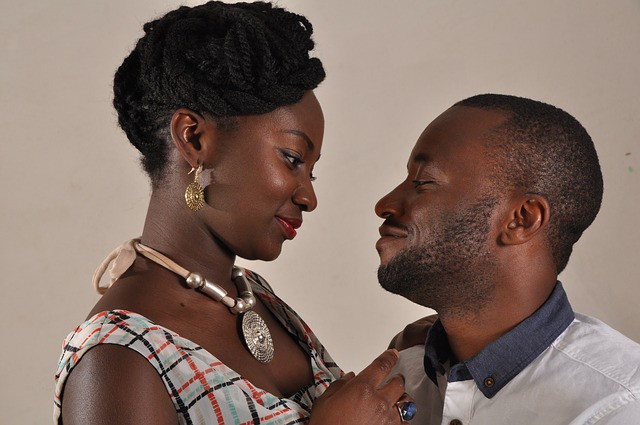- Calls to this hotline are currently being directed to Within Health or Eating Disorder Solutions
- Representatives are standing by 24/7 to help answer your questions
- All calls are confidential and HIPAA compliant
- There is no obligation or cost to call
- Eating Disorder Hope does not receive any commissions or fees dependent upon which provider you select
- Additional treatment providers are located on our directory or samhsa.gov
Study Seeks Further Insight on Treating Binge-Eating Disorder Among Couples

Eating disorders have a ripple effect that impacts every aspect of an individual’s life from their relationships, to their job, etc. Studies show that, when the family or loved ones of a disordered eating individual are involved in treatment, the outcomes are more successful. Treating binge eating disorder using family-based treatments is proving more effective than just individual treatment.
Even so, the majority of eating disorder treatment involves individual psychotherapy. Taking the benefit of family-based treatment into consideration, researchers are developing “a suite of couple-based treatments incorporating partners in a developmentally appropriate manner [1].”
The first foray into these treatments focused on treating Anorexia Nervosa with this approach and was called UCAN, Uniting Couples in the treatment of Anorexia Nervosa. Results indicated that this treatment “yielded lower drop-out (10%) than most adult anorexia nervosa trials; increased weight gain notably; decreased anxiety and depression; and improved relationship functioning [1].”
That sounds pretty successful to me, and researchers seemed to agree, having now taken this approach further and developed UNITE-BED, Uniting Couples In the Treatment of Eating disorders – Binge Eating Disorder edition.
A 2018 study published in the International Journal of Eating Disorders provided 22 weeks of UNITE treatment to 11 adult couples in which one or both partners had a DSM-5 diagnosis of an eating disorder. People also received individual therapy outside of the context of the trial.
“Couples completed measures on treatment satisfaction, eating disorder symptom severity, depression, anxiety, emotion regulation, and relational functioning at post-treatment and 3-month follow-up [1].”
Before we go into the results of this study of treating binge eating disorder in couples, it is worth pointing out why UNITE-BED is different from individual treatment or other family-based treatments.
The study mentioned above details that “UNITE-BED targets BED psychopathology, co-occurring symptoms, and relationship functioning by integrating core cognitive-behavioral therapy (CBT) for BED principles with cognitive-behavioral couple therapy interventions [1].”
The study found that the drop-out rate, similar to the UCAN treatment, was “on the low end of psychotherapy trials for BED” at 9% [1].
Researchers concluded that “UNITE-BED may contribute to clinical improvement. Binge-eating abstinence and remission rates were good at post-treatment and follow-up [1].” It was also found that an individual’s depression levels decreased, which was maintained at follow-up, and their emotional regulation improved in treatment and at follow-up [1].

Thankfully, researchers have already taken up that torch, as they are currently recruiting participants for a study that will further our understanding of UNITE-BED. It will be comparing it to the “established evidence-based individual treatment” of Cognitive Behavioral Therapy – Enhanced (CBT-E) [2].”
Researchers estimate approximately 76 people will participate. They will be randomly assigned to either receive CBT-E or UNITE-BED treatment and will receive 16 1-hour sessions of this treatment [2]. Researchers will then assess progress and compare the results of the two treatments.
Their hypothesis, based on the previous research mentioned showing the effectiveness of UNITE-BED and family-based treatments, is that UNITE-BED will prove more effective than CBT-E in treating binge eating disorder in couples.
This information will help eating disorder researchers and treatment professionals develop and implement the treatments that will be most effective in helping individuals achieve recovery.
Resources:
[1] Runfola, C. D. et al. (2018). A pilot of UNITE-BED: a couple-based intervention for binge eating disorder. International Journal of Eating Disorders, 51:9. [2] Guerra. R. et al. (2019). Uniting couples in the treatment of binge eating disorder (UNITE). US National Library of Medicine, retrieved from https://clinicaltrials.gov/ct2/show/NCT03784820.About the Author:

As a freelance writer for Eating Disorder Hope and Addiction Hope and a mentor with MentorConnect, Margot is a passionate eating disorder advocate, committed to de-stigmatizing these illnesses while showing support for those struggling through mentoring, writing, and volunteering. Margot has a Master’s of Science in Clinical Mental Health Counseling from Johns Hopkins University.
The opinions and views of our guest contributors are shared to provide a broad perspective on eating disorders. These are not necessarily the views of Eating Disorder Hope, but an effort to offer a discussion of various issues by different concerned individuals.
We at Eating Disorder Hope understand that eating disorders result from a combination of environmental and genetic factors. If you or a loved one are suffering from an eating disorder, please know that there is hope for you, and seek immediate professional help.
Published January 30, 2020, on EatingDisorderHope.com
Reviewed & Approved on January 30, 2020, by Jacquelyn Ekern MS, LPC
